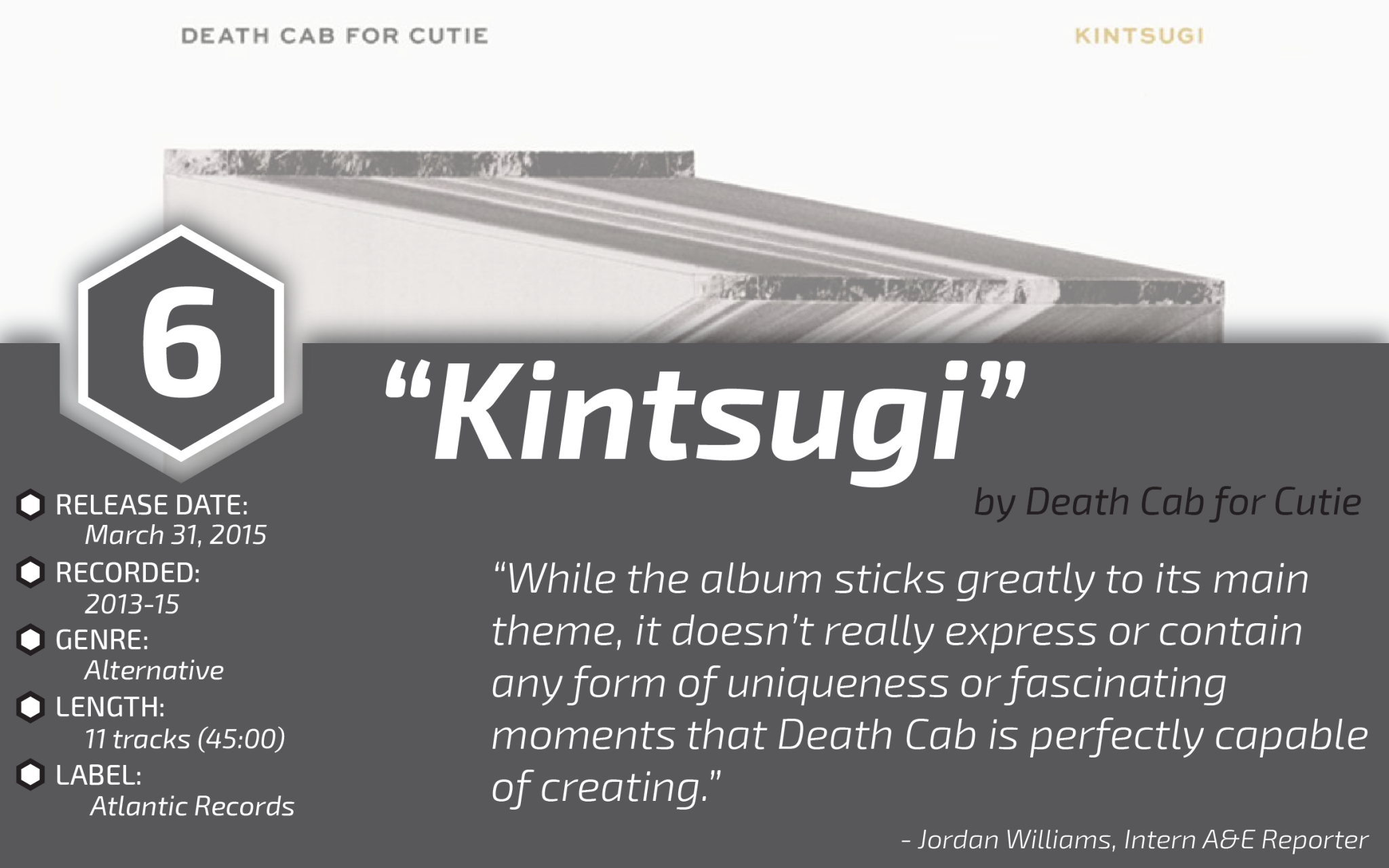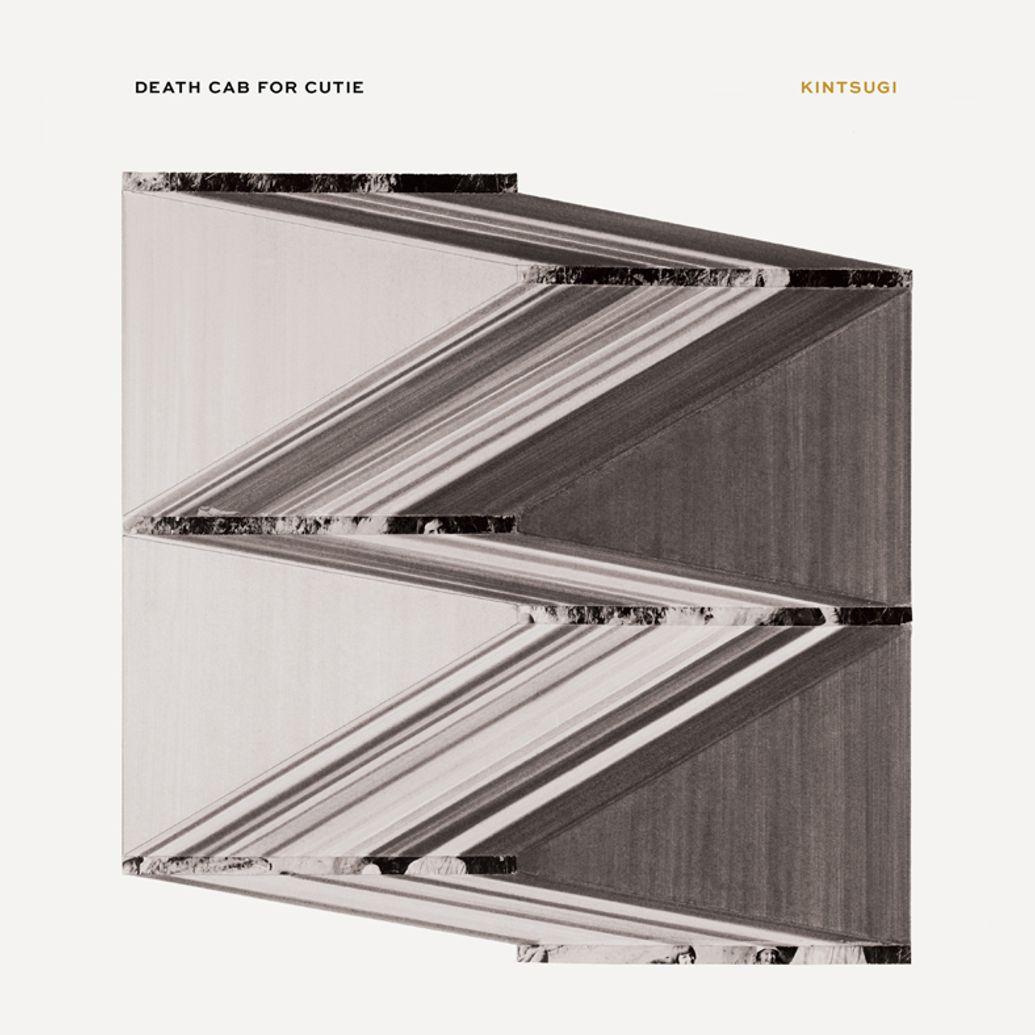“Kintsugi,” the title of alternative rock band Death Cab For Cutie’s eighth album, is the Japanese art of fixing broken pottery with a gold finish. The term is also used to express the philosophy of embracing past pain as part of a personal history, rather than trying to hide it.

The term perfectly describes the overall theme of this album, that breakage, or breakups in this instance, are part of the cycle of human relationships. The theme calls to mind the popular 2009 film “500 Days of Summer,” in which lead singer Ben Gibbard’s ex-wife, Zooey Deschanel, starred.
Death Cab For Cutie has been around for a while. Their first album, “Something About Airplanes,” came out in 1998. The band won the hearts of hipsters and young romantics with their heartfelt, sensitive lyricism and elegant, often intense instrumentation in albums such as “Transatlanticism,” “Plans” and “Narrow Stairs.”
On “Kintsugi,” Death Cab doesn’t really take any new strides creatively, but they hone their sound and keep an audience’s attention. Some of the tracks are reminiscent of those from their previous albums.
The first track “No Room In Frame,” is an excellent example of Gibbard’s talent at incorporating melancholy lyrics with relaxing, upbeat musical arrangements. Beginning with some dispersed electric guitar feedback and bubbly guitar licks, Gibbard makes it obvious that he’s referencing Deschanel in the chorus: “Was I in your way/When the cameras turned to face you?/No room in frame for two.”
“Black Sun,” the second track and lead single from the album, features somber electronic synths and sharp guitar notes. Gibbard pensively sings lyrics that also focus on his past relationship. The song features some clever guitar work throughout.
“Little Wanderer,” is Death Cab bringing it back to its earlier sound, with catchy guitar and piano scattered throughout, as well as Gibbard’s crooning romantic lyrics. Influences such as The Cure can be heard throughout this track. Though it’s the catchiest on the album, this track follows the same lyrical repetition of the others: “And I hope your absence makes us grow fonder/I hope we always feel the same.” 
“Hold No Guns” contains as much excitement as stale bread. While Gibbard’s voice does shine, the song seems like a bad attempt at an “I Will Follow You Into The Dark” rewrite.
Things change up a little bit with “Everything’s A Ceiling,” an upbeat dance track that makes the sappy lyrics explode with colorful sonic imagery. The upward trend continues with “El Dorado,” on which the band explores their ’80s gothic side and Gibbard’s vocals really shine on this track.
“Ingenue” marks the album’s creative peak, with Gibbard’s looped “la-la-las” and tremendous guitar solos – the song has its own charm to it and shows just how much Death Cab is capable of when they express their full potential.
Overall, “Kintsugi,” will be hit or miss for Death Cab fans. Some will enjoy the similarities to their previous albums while others will be turned off by the boring lyrics and similar sounding tracks throughout the album. While the album sticks greatly to its main theme, it doesn’t really express or contain any form of uniqueness or fascinating moments that Death Cab is perfectly capable of creating.
Story: Jordan Williams, Intern A&E Reporter
Infographic: Malik Rahili, Visual Managing Editor
